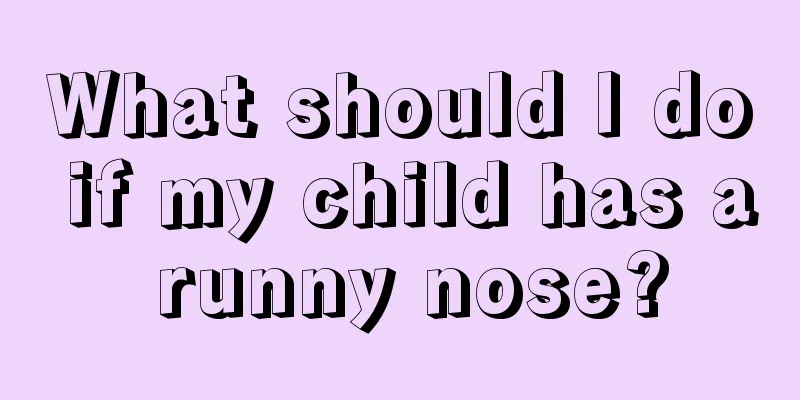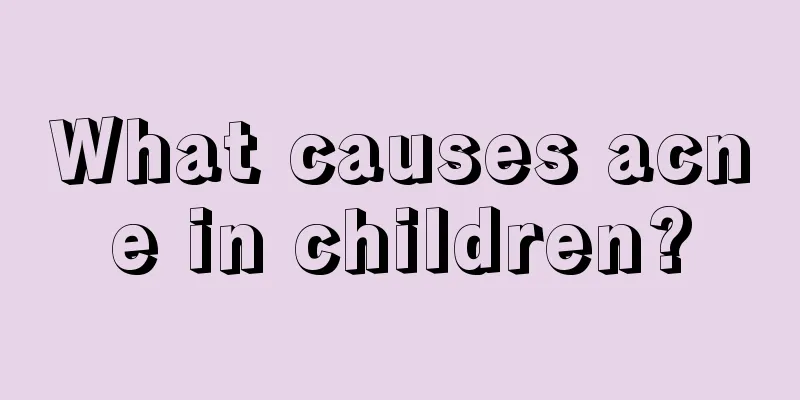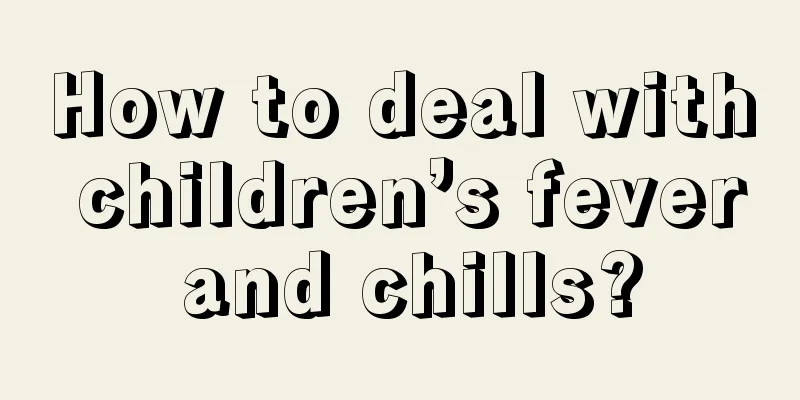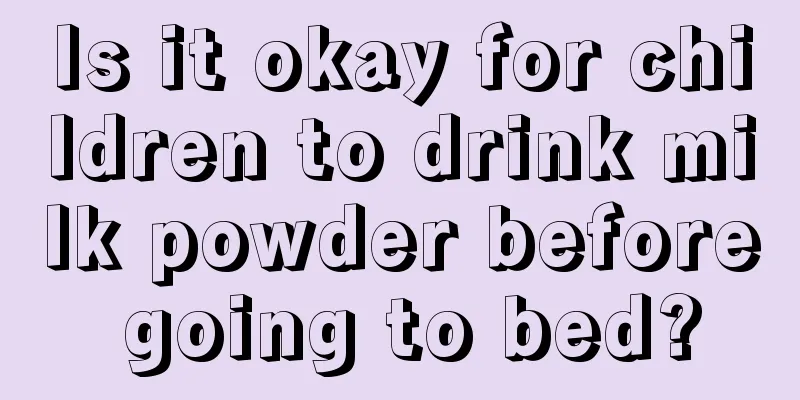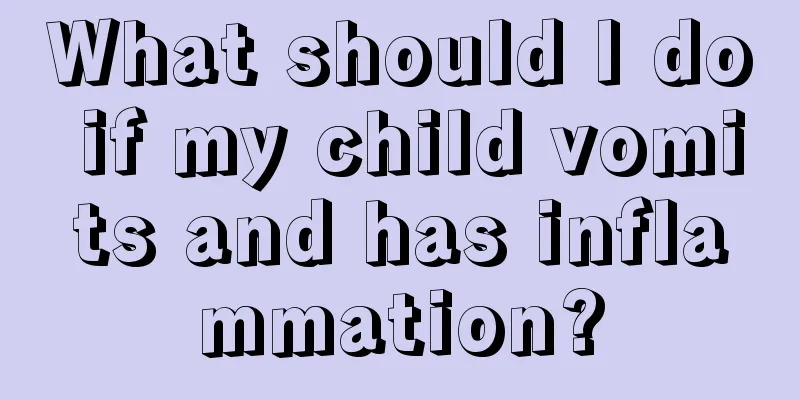How to deal with nose bleeding in children
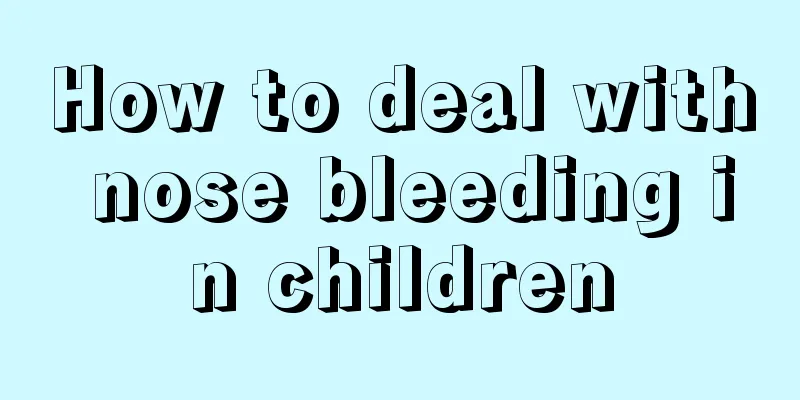
|
Nosebleed is a condition that many people have experienced. There are many reasons for nosebleeds, but what we need to know is how to deal with nosebleeds in young children. Once nose bleeding occurs, the first thing to do is to let the child sit or half-reclining, and pinch the nostrils on both sides with the thumb and index finger to stop the nosebleed. If it does not stop, you can also use some medicines and other means. 1. If nose bleeding occurs, let the patient sit or semi-recumbent, and comfort the patient to avoid excessive tension and keep him as calm as possible. Because mental stress often increases blood pressure and intensifies bleeding; patients with nosebleeds caused by high blood pressure should pay special attention to this. 2. Local treatment mainly involves compression to stop bleeding, and the treatment steps depend on the location and extent of bleeding. (1) Ask the patient to pinch both sides of the nose with the thumb and index finger. This will stop the bleeding for 5-10 minutes. (2) If the bleeding does not stop, you can stuff a clean cotton ball, gelatin sponge, soft cloth, etc. into the nasal cavity and apply pressure to stop the bleeding. (3) If the bleeding still persists, a dry cotton ball or hemostatic sponge dipped in hemostatic powder, 1% ephedrine, or 1% adrenaline can be inserted into the nasal cavity to astringe and stop the bleeding. While carrying out the above three treatments, you can also apply a cold towel or ice pack to the forehead, nose, neck or pillow, and change it repeatedly to promote blood vessel contraction and reduce bleeding. (4) If the bleeding is recurrent or the amount of bleeding is heavy, you need to clean the blood in the nasal cavity first, find the bleeding site as much as possible, and then fill and press the bleeding site with a sterilized vaseline gauze strip. The oil gauze strip can be left in the nasal cavity for 24-72 hours. When the nosebleed has stopped, the oil gauze can be removed after an appropriate period of time. If bleeding continues after 24-72 hours, the patient should be sent to the hospital for treatment immediately. 3. Systemic treatment mainly focuses on the treatment of possible shock. If the nose bleeding does not stop after the above methods and shock occurs, the patient should be placed in a supine position with the head tilted to the healthy side to prevent blood from flowing into the pharynx, causing nausea and aggravating bleeding. At the same time, use acupuncture or finger pressure on the Ren Zhong and Yongquan points to rescue. And send to nearby hospital for treatment in time. 4. Ear therapy (1) Blowing method: Blow air into the ear hole on the same side. The operator pinches the upper part of the patient's ear with one hand and pulls open the earlobe with the other hand to enlarge the ear hole. Then the operator takes a deep breath and blows air into the ear hole evenly with his mouth. Repeat this three times and the nosebleed can usually be stopped. If bleeding still occurs, repeat the above steps once more. (2) Plug the ear canal with an alcohol cotton ball: Use a 75% alcohol cotton ball (or a cotton ball soaked in shochu or kaoliang wine) to plug the ear canal on the same side to stop the nosebleed. (3) Pressing the ear tip point on the same side can also stop nosebleeds. Press for 3-5 minutes each time. |
<<: Can children who are not calcium deficient take calcium supplements?
>>: What to do if your child has hydrocephalus
Recommend
What is the cause of the baby's teeth grinding at eleven months old?
Taking care of a baby is the most troublesome thi...
Tetany in children?
Tetany is a common disease in children. Most case...
What to do if your child accidentally swallows chewing gum
The symptoms of children accidentally swallowing ...
What to do if your baby has eczema and peeling?
Some babies have peeling due to eczema, which ser...
How to treat phlegm-damp constitution in children?
Children's health is what worries parents the...
Treatment for baby crying before bed
Babies crying before going to bed often makes us ...
15 month old baby has diarrhea
If a 15-month-old baby has diarrhea, it is often ...
What to do if your child has trouble breathing at night
People are most likely to get sick and infected w...
Mental retardation training
In life, there are always some children whose int...
What to do if baby has blisters on feet due to eczema
Eczema is a relatively common skin disease. The b...
The child vomited three times at night
It is very hard for mothers to take care of child...
Is it calcium deficiency that causes the baby to have a big head and a small face?
Various accidents may occur during the baby's...
Symptoms of viral fever in children
Children's resistance is relatively weak, so ...
Children with bronchiolitis, parents should know these treatments
If bronchitis occurs in a child, parents must pay...
What should I do if my two-year-old child has a fever?
Many people with poor physical constitution will ...

